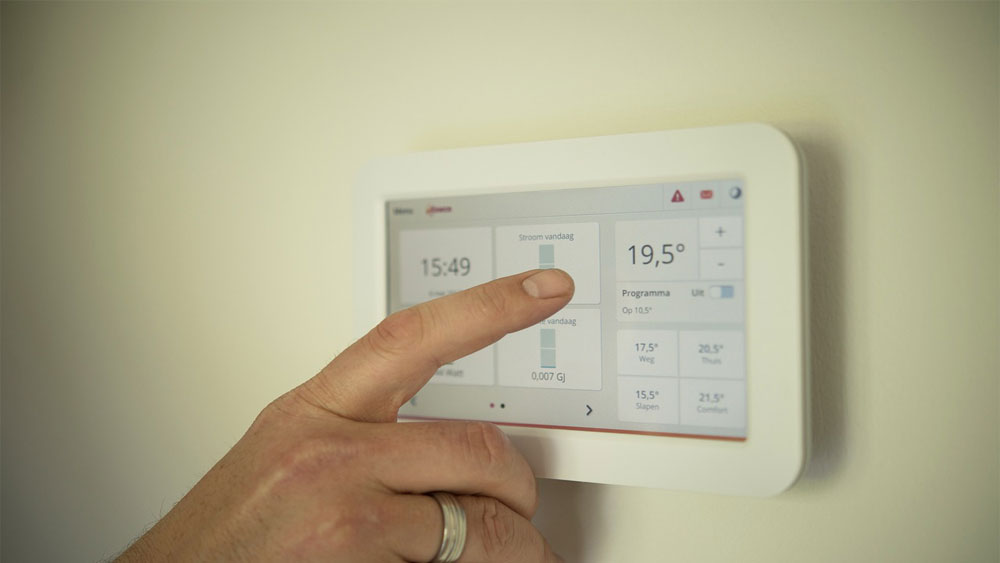Best Types of Heating Systems for a Large House – To Keep You Warm

Selecting the right heating system for a large house is a crucial decision that impacts your comfort, energy efficiency, and overall expenses. With different room sizes, several floors, and higher heating demands, large residences have special heating issues.
When considering upgrading your home, it becomes crucial to evaluate various factors to ensure a warm and comfortable environment during cold months. In this scenario, selecting the best heating system for a large house is always advisable.
Factors to Consider Before Choosing the Best Heating System for a Large House
Before we dive into the best heating system for a large house, it’s crucial to thoroughly examine the key factors that should guide your decision making process.
1. Size of the House
The primary and most critical consideration when selecting a heating system for your large house is the sheer size of your home. A larger residence requires a heating system that efficiently distributes warmth across all rooms and multiple levels. Neglecting this factor can result in uneven heating and discomfort in certain areas of your house.
2. Insulation Quality
Assessing the quality of insulation in your home is paramount. Adequate insulation reduces heat loss and ensures your heating system operates at peak efficiency. Also, well insulated homes keep you warmer and lead to substantial energy cost savings in the long term. Evaluate your insulation and consider making improvements if necessary.
3. Climate Considerations
Your geographical location determines the best heating system for a large house. Strong heating solutions may be required to maintain comfort in regions with harsh, frigid winters. Conversely, in milder climates, you have more flexibility in choosing a system with a lower capacity.
4. Energy Efficiency
Another crucial element to consider is the energy efficiency of various heating systems. Long-term electric bill savings can be achieved by selecting a system with excellent energy efficient building materials because it has financial advantages. Select your preferred fuel source for your heating system from the available options. Natural gas, electricity, propane, and oil are typical choices. Availability, affordability, and environmental factors may all influence your decision. Think about the fuel source that best suits your preferences and the supply in your area.
5. Budgetary Considerations
When considering the costs, it is essential to account for both initial expenses and long-term consequences. While certain systems may have higher upfront costs, they can prove cost-effective due to lower ongoing operating expenses. It’s vital to evaluate the overall financial impact before making a decision. Also, a successful investment depends on striking a balance between your spending and your heating requirements. Remember that each property is unique, and the ideal heating option will depend on your preferences and needs.
Best Heating System for Large House
Now, let’s explore some of the best heating systems for large houses:
1. Furnace

Furnaces are popular for heating large homes, especially in regions with cold winters. They can use various fuel sources, including natural gas, propane, or electricity.
Furnaces heat air and then distribute it throughout your home using ductwork. They are known for their rapid heating capabilities and even distribution of heat.
Pros:
- Effective heating in large spaces.
- Quick response to temperature changes.
- Integration with central air conditioning is possible.
Cons:
- Initial installation costs can be high.
- Ductwork maintenance and efficiency can be issues if not properly maintained.
2. Boiler System

The best combi boiler for a large house is never a bad idea. Boiler systems heat water and then distribute the heated water through radiators, baseboards, or radiant floor heating systems.
They are efficient and provide consistent warmth which makes them suitable for large homes. Plus they come with options. You can always choose between the best boiler for 7 bedroom house or a tiny space.
Pros:
- Even heat distribution.
- High energy efficiency.
- Ideal for a central heating system.
Cons:
- Costly installation is a possibility.
- Compared to furnaces, it takes longer to warm up.
3. Heat Pumps

Do you know around 15% of US homes use a heat pump?
Heat pumps offer a flexible and cost-effective solution for efficiently regulating the temperature in spacious homes. These systems transfer heat from the interior of your house to the external environment, whether it’s to the ground or the surrounding outdoor air.
Heat pumps are particularly effective in regions with mild winters as they excel at both heating and cooling functions.
Pros:
- Energy-efficient operation.
- Provides both heating and cooling.
- Lower operating costs in moderate climates.
Cons:
- Initial installation costs can be higher than traditional systems.
4. Geothermal Heat Pump
Geothermal heat pumps are a variation of traditional heat pumps, tapping into the Earth’s consistent underground temperature to offer an exceptional heating and cooling solution.
These systems are celebrated for their remarkable efficiency, but it’s important to note that they need a substantial initial investment. Because of so many good features, they indeed make the best heating system for a large house.
Pros:
- Exceptional energy efficiency.
- Long lifespan.
- Environmentally friendly.
Cons:
- High installation costs.
- Limited availability in some areas.
5. Radiant Floor Heating:

Radiant floor heating involves heating water and circulating it through pipes or electric coils beneath the floor. This system provides luxurious and even heat distribution and that makes it suitable for large homes.
Pros:
- Even comfortable heat distribution.
- No visible heating equipment.
- Zoning capability to heat specific areas.
Cons:
- Higher upfront installation costs.
- Slower response time compared to forced-air systems.
6. Multi-Zone Systems
Large homes can benefit from multi-zone heating systems because they allow you to independently control the temperature in different areas. This approach ensures you use energy wisely by heating only the occupied areas.
Pros:
- Customizable comfort in different zones.
- Energy savings by heating only occupied areas.
Cons:
- Initial installation costs can be higher.
- It may require more complex maintenance.
Conclusion
Considerations for selecting the ideal heating system for a large home include size, insulation, temperature, energy efficiency, fuel supply, and budget. Every heating system has a unique set of benefits and drawbacks, so it’s critical to consider your tastes and top priorities.
For large homes, furnace and boiler systems are reliable, while heat and geothermal heat pumps offer energy-efficient alternatives. Radiant floor heating provides luxurious comfort, and multi-zone systems allow personalized heating control.
Ultimately, the best heating system for your large house will depend on your specific needs and circumstances. It’s advisable to consult with heating professionals who can assess your home and provide tailored recommendations. By making an informed choice, you can enjoy a warm and comfortable living space while optimizing energy efficiency and reducing long-term heating costs.

news via inbox
Sign up and never miss out on the latest news and updates at HighStuff




